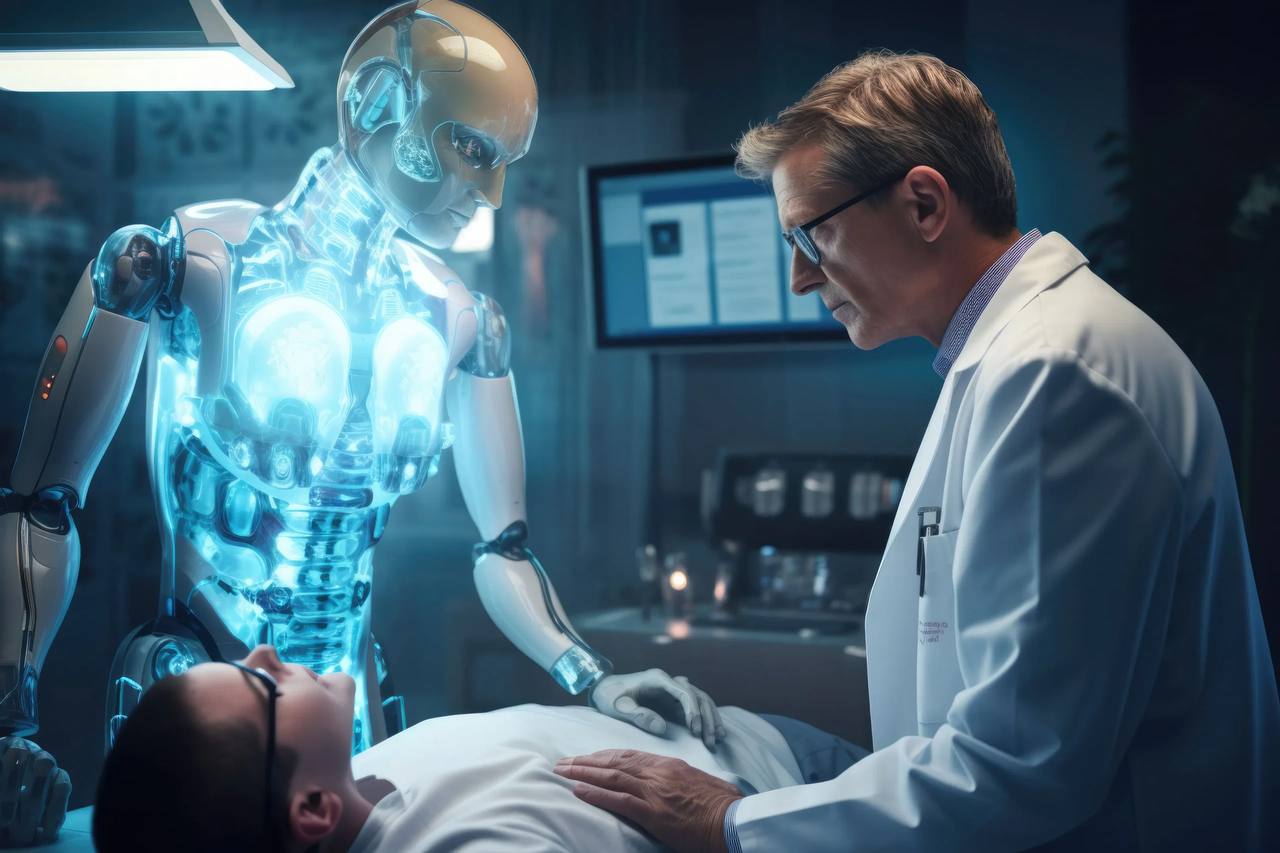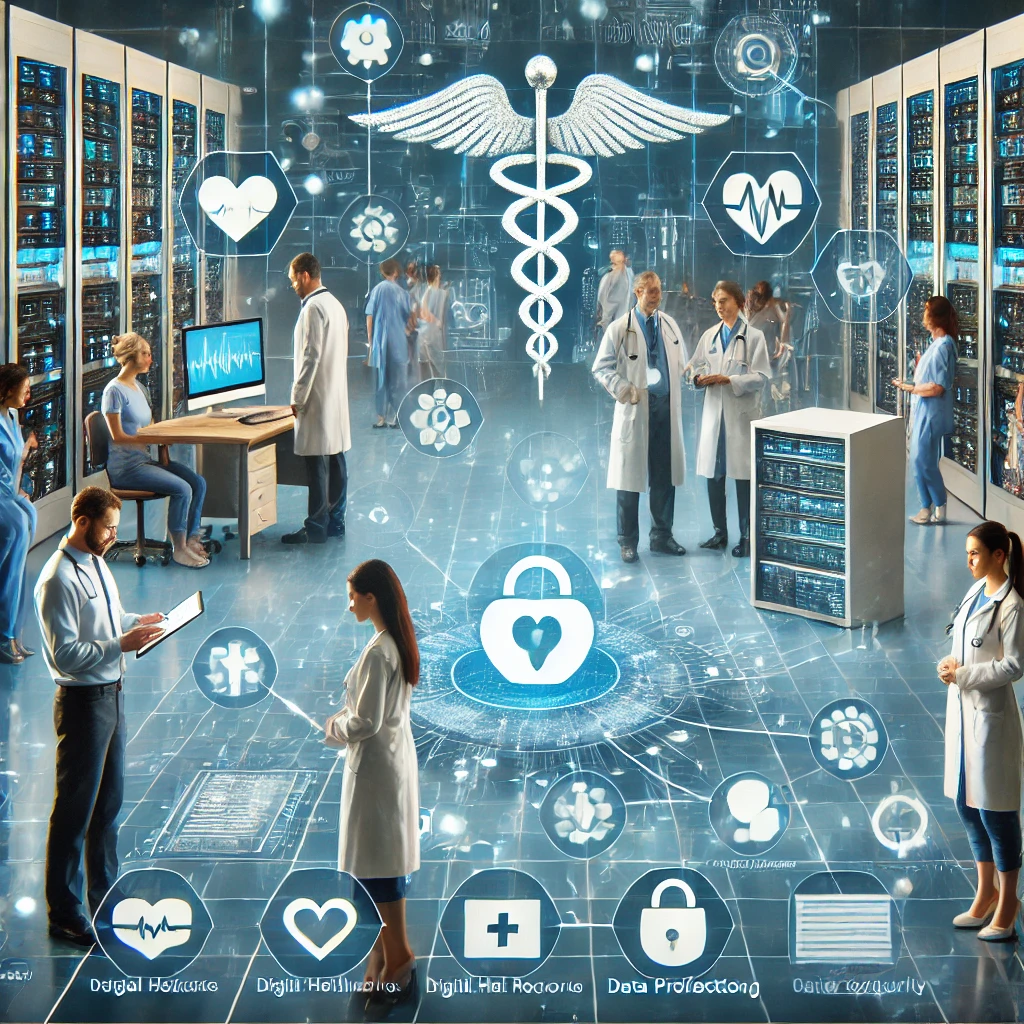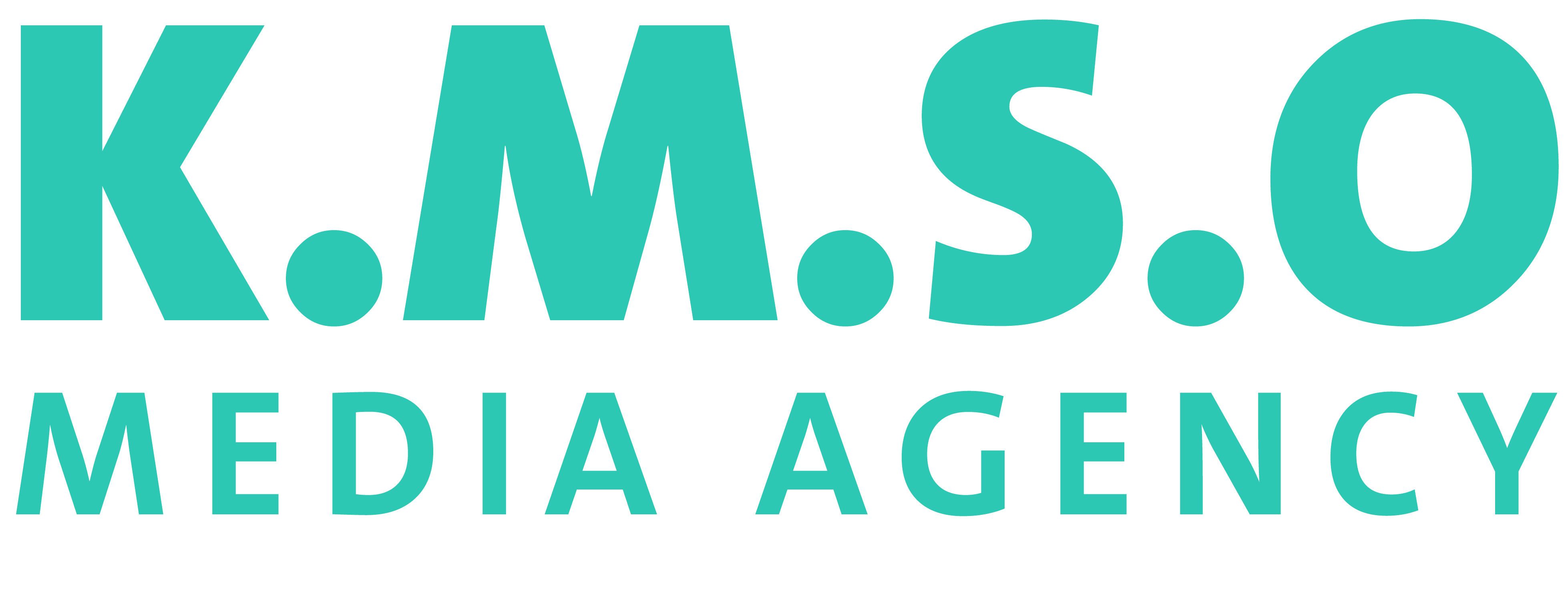Article
World

2024-11-01 01:29
Ahsan
The future of healthcare with artificial intelligence
After the significant advances in artificial intelligence in all areas of life, the healthcare sector has been able to use artificial intelligence technology in all aspects of health and medicine to further serve humanity and prevent and treat diseases.
Despite the continuous research and work of healthcare experts and doctors to find the latest treatments in any other way in laboratories and research centers, artificial intelligence has made significant progress.
Artificial intelligence, although not a new science, but especially after the new revolution of OpenAi in 2022, which put the product ChatGpt available to users could be used in all areas.
In the field of medicine and health in general, it has been able to advance medical research, helping doctors and healthcare staff to diagnose diseases early and apply treatment in the shortest time and with the greatest effectiveness.
The latest artificial intelligence achievement was the prestigious Nobel Prize in Chemistry jointly awarded to Demis Hassabis and John M. Jumper for designing an artificial intelligence model to predict complex protein structures that gave hope for a disease that had been there for more than 50 years It was incurable and on that invention the necessary solution should be found.
The World Health Organization sees the potential of artificial intelligence in improving health outcomes by strengthening clinical trials that lead to better diagnosis and treatment.
Dr. Tedros Adhanom Ghebreyesus, Director-General of the World Health Organization (WHO), said: “Artificial intelligence has great achievements for health, but it also poses serious challenges such as patient data collection, risk of dissemination, cybersecurity threats, bias and misinformation.
In this area, Google has created a special model called Med-Gemini, which is able to summarize medical reports, refer patients to specialists and recommend treatments and tests under the supervision of a doctor.
In the same effort, a team of Taiwanese researchers developed an artificial intelligence program with 16,000 patients on 450,000 ECG tests that reduced overall mortality by 31% and death from heart problems by more than 90%.
Meanwhile, scientists are developing an electronic skin system that connects directly to nerve cells through artificial intelligence that can replace sensors such as touch, cold and heat in people who have lost part of their body.
One of the most difficult and tiring diseases for doctors to treat, artificial intelligence systems can now be used to diagnose cancer much easier and earlier, reduce mortality and help improve cancer drugs.
In the field of radiology, several artificial intelligence systems can read 3D radiation such as CT scans, MRIs and X-rays, which can make it easier to diagnose diseases.
Through the creation of artificial intelligence chatbots, patients can receive more warnings about diseases and treatments and will be a tool for doctors and health staff to make better decisions and diagnosis of diseases and easier to choose medicines and tests for patients and reduce error rates. Through the creation of artificial intelligence chatbots, patients can receive more warnings about diseases and treatments and will be a tool for doctors and health staff to make better decisions and diagnosis of diseases and easier to choose medicines and tests for patients and reduce error rates.
In addition to these systems, artificial intelligence through robots has a very good ability to help the health sector as well as surgeries and even dental problems through a robotic system designed by Perceptive, which completed the first fully automated dental procedure on a human in the field of natural therapy to be developed by IYU under the name of Caspix, the first massage robot with artificial intelligence system.
Many companies and research centers have opened departments of artificial intelligence in the field of healthcare, which is daily research and innovation through it, each of Google and Microsoft are in fierce competition to improve their systems in the field of artificial intelligence to improve health .
These and many other innovations and research through artificial intelligence will make medical science and healthcare to move to a higher level and reduce mortality and morbidity, despite the challenges that come through artificial intelligence, but will be the hope of treating many patients and suffering.
References:
https://www.nobelprize.org/prizes/chemistry/2024/summary
https://paige.ai/paige-receives-first-ever-fda-approval-for-ai-product-in-digital-pathology/
https://www.microsoft.com/en-us/research/project/ai-for-health/
https://ai.google/discover/healthai/
https://www.science.org/doi/10.1126/scirobotics.aax2198
https://www.nature.com/articles/s41591-024-02961-4
Prepared by: Safin Hussein Mohammed
892
Read
World
2024-11-22 05:46
Senk
Cybersecurity in Digital Health: What You Need to Know
As healthcare continues to adopt more digital tools, from electronic health records to telemedicine, it brings incredible benefits but also major risks to patient privacy and data security. Cyberattacks, especially ransomware, are one of the most serious threats healthcare systems face today. Ransomware works by locking up critical systems until the organization pays a ransom. This not only disrupts care but can also endanger patient safety and cost hospitals millions of dollars in recovery efforts.
Moreover, privacy is a growing concern. As more health data is stored digitally, there’s an increasing risk that it could be accessed by unauthorized individuals or stolen. Hospitals and healthcare providers must follow strict regulations to ensure patient data is protected, but keeping up with constantly changing digital systems and new technologies can be a challenge.
How Healthcare Providers Are Responding
To tackle these challenges, healthcare organizations are turning to advanced technologies like artificial intelligence (AI) and machine learning (ML) to detect and prevent cyber threats before they escalate. These technologies help monitor systems for unusual activity and can stop attacks in their tracks.
In addition to using AI, healthcare providers are focusing on resilience—making sure they can recover quickly if a cyberattack does occur. This means having strong backup systems and disaster recovery plans so that even if an attack succeeds, it doesn’t bring down the whole system.
Looking Ahead
As healthcare becomes more digitized, cybersecurity will remain one of its biggest challenges. Hospitals are using more cloud services and remote care tools, which means more points of entry for cybercriminals. However, by focusing on strong security, using cutting-edge technologies, and ensuring they follow privacy laws, healthcare organizations are better prepared to face these evolving threats.
206
Read
Leading academic platform that is exclusive
with medical publications and research
Health in Kurdistan, Iraq and the world
About
Sections
Latest News